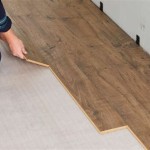Radiant Heat Flooring On Slab: The Ultimate Guide
Radiant heat flooring on slab is an increasingly popular choice for homeowners looking for a comfortable and efficient way to heat their homes. It is a type of radiant heating system that uses electric cables or water-filled tubes embedded in or installed above the subfloor, below the floor covering. When these cables or tubes are heated, they emit heat that radiates upwards, warming the floor and the room from the ground up.
Radiant heat flooring on slab is known for its superior comfort and energy efficiency. Heat is evenly distributed throughout the floor, eliminating cold spots and drafts. Since the heat source is located under the floor, it does not create air currents, resulting in a more comfortable and allergen-free environment.
Additionally, radiant heat flooring is energy-efficient due to its minimal heat loss and thermal mass. Unlike forced-air heating systems, radiant heat does not require ductwork, which can lose heat through leaks and inefficient insulation. Radiant heat systems also take advantage of the thermal mass of the floor, which stores heat and releases it gradually, reducing energy consumption.
Components of Radiant Heat Flooring On Slab
- Heating Element: Electric cables or water-filled tubes embedded in or installed above the subfloor.
- Insulation: Insulation is installed below the heating element to minimize heat loss into the ground.
- Floor Covering: Radiant heat flooring can be installed under a variety of floor coverings, including tile, stone, hardwood, laminate, and carpet.
- Control System: A thermostat or temperature sensor monitors the floor temperature and controls the heating element.
Advantages of Radiant Heat Flooring On Slab
- Comfort: Radiant heat provides a comfortable, warm floor and eliminates cold spots.
- Efficiency: Less energy is required to heat a room with radiant heat compared to forced-air systems.
- Health Benefits: Radiant heat does not create air currents, reducing allergens and improving air quality.
- Durability: Radiant heat systems have a long lifespan and require minimal maintenance.
- Aesthetics: Radiant heat flooring is discreet and does not take up valuable wall or floor space.
Considerations for Radiant Heat Flooring On Slab
- Installation: Radiant heat flooring on slab requires professional installation to ensure proper performance and safety.
- Cost: Radiant heat flooring can be more expensive to install than traditional heating systems.
- Responsiveness: Electric radiant heat systems respond quickly to temperature changes, while water-based systems take longer to adjust.
- Floor Covering: Not all floor coverings are suitable for radiant heat flooring. It is important to choose materials that are compatible with radiant heat and will not damage the system.
Conclusion
Radiant heat flooring on slab offers homeowners a comfortable, efficient, and aesthetically pleasing heating solution. However, it is important to carefully consider the advantages, disadvantages, and costs involved before making a decision. If properly installed and maintained, radiant heat flooring can significantly enhance the comfort, energy efficiency, and overall value of your home.
Radiant Heating In Polished Concrete Floors

Radiant Heating Department Of Energy

Concrete

The Slab On Grade Installation Diy Radiant Floor Heating Company

Radiant Heating Floor Leveling Heated Concrete

Quick Kits For Concrete Slab Radiant Heat Installation Radiantec

Thermalboard Vs Concrete Slab

The Slab On Grade Installation Diy Radiant Floor Heating Company

Radiant Heating Systems Residential Commercial Greenhouse Hydronic Floor Baseboard Installations

Warm Up To The Opportunities With Radiant Floor Heating Concrete Decor
Related Posts








